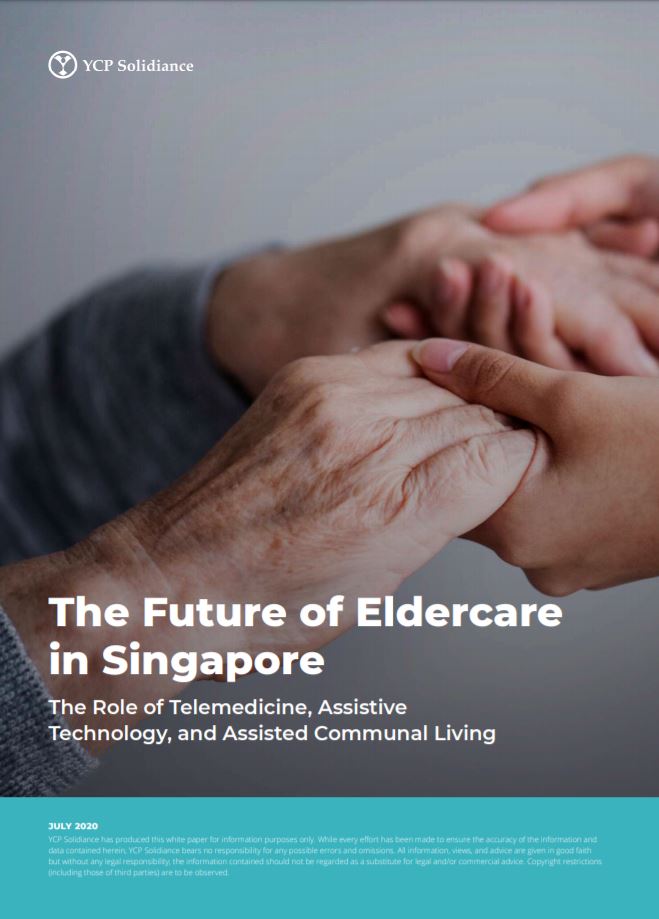Singapore’s population is ageing at a faster rate than most of its neighbours in the region, and it is estimated that nearly 10%, or 83,000 seniors, will be living alone by 2030. To accommodate this, the Singapore government has introduced initiatives to shift the primary model of care to the new model of community-care. The recently published white paper from YCP Solidiance, “The Future of Eldercare in Singapore”, identifies opportunities for companies to provide relevant infrastructure and services, including telemedicine and assistive technology to fulfill the growing demand.
Singapore is projected to have the highest percentage of elderly in Southeast Asia and the 5th highest in Asia by 2030, at 22.5%. This also results in a rapid increase in the old-age dependency ratio which will consequently double to 36.6% by 2030.
Telemedicine and Assistive Technology to Support Elderly
Telemedicine can help to solve issues of long waiting time in public healthcare facilities which can go up to 77 minutes for a consultation and three hours for no prior appointments visitation. Opportunities are present in the form of telemedicine Software-as-a-Service (SaaS) for complex care and chronic disease self-management and also other services like telerehabilitation and telecoaching, especially with the current backdrop of lockdown due to COVID-19.
The government is also supporting the adoption of assistive technology and provides subsidies to Singaporean seniors for independent living in the community. The increasing demand provides opportunities for firms in the assistive technology market, including home sensors and technology wearables.
Given that Singapore’s elderly population has one of the highest purchasing powers in the region, in which the elderly are expected to contribute approximately USD 44 billion yearly, there exists a largely untapped opportunity for companies to provide premium eldercare service equipped with leisure facilities in the private communal living. The impact of this evolution would inevitably call for more resources to be allocated to the eldercare. As Singapore is still in a nascent stage in the market, there are ample opportunities for businesses to explore in the building-up and support of this sector.



